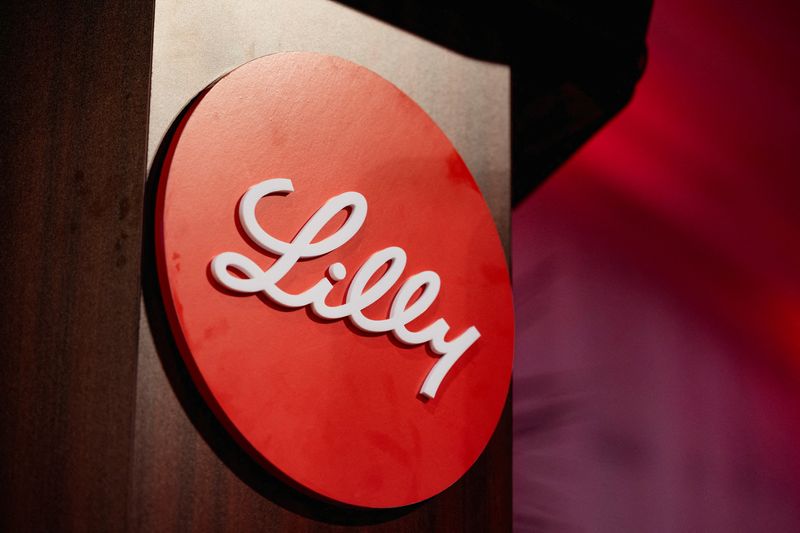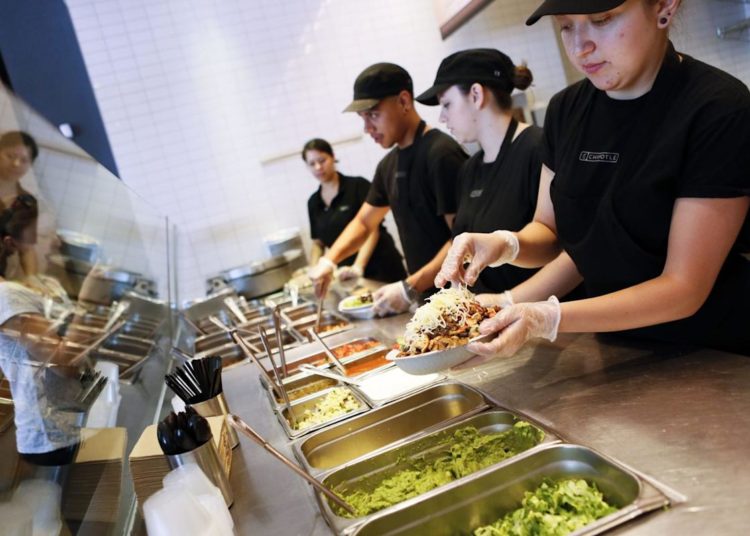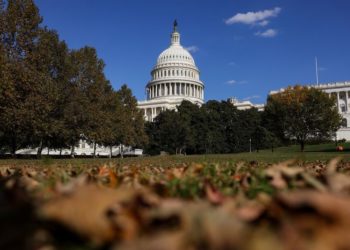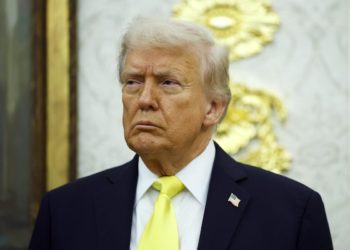By Mrinalika Roy and Patrick Wingrove
(Reuters) -Eli Lilly said on Thursday its experimental weight-loss pill met most criteria for the U.S. Food and Drug Administration’s new national priority voucher, suggesting it is a strong candidate for a significantly accelerated approval review.
Lilly said it will submit its review package for the pill, orforglipron, to the FDA this quarter, adding the agency will decide on the approval process.
In June, the FDA unveiled a program under which its commissioner can award vouchers to national‑priority drugs, shortening reviews to one to two months from about 10 to 12.
Priority criteria include innovative medicines, addressing health crises or unmet needs, and boosting domestic manufacturing. Lilly said it meets three of the four criteria.
The Indianapolis-based drugmaker’s experimental GLP-1 pill was shown to help patients lose 12.4% of their body weight in a late-stage study, and the company has pumped billions of dollars into new U.S. plants to manufacture it.
The FDA earlier this month announced the first nine recipients of the voucher program, which include Merck KGaA’s fertility drug Pergoveris, Sanofi’s Type 1 diabetes drug teplizumab, and a Regeneron drug for deafness.
BEAT AND RAISE
Lilly on Thursday also raised its full-year profit and revenue forecasts as strong overseas demand for weight-loss drugs from cash payers helped it breeze past Wall Street’s third-quarter earnings expectations.
Shares of the world’s largest healthcare company by market value were up 3% even as investors remain wary of drug price negotiations with the Trump administration.
“International Mounjaro demand was a strong driver of the beat and raise this quarter, which is a fantastic factor that shows the dynamicism of the Eli Lilly business model,” said Kevin Gade, chief operating officer at Bahl & Gaynor, which owns Lilly shares.
Guggenheim analysts said international Mounjaro sales came in nearly $1 billion above its estimates for the quarter. Mounjaro is the brand name used for treating weight loss and type 2 diabetes outside the U.S. It is sold as Zepbound for weight loss in the U.S.
A Lilly executive during a call to discuss its results said about three-quarters of Mounjaro revenue from outside the U.S. came from people with obesity paying out of pocket.
Lilly competes with Novo Nordisk for dominance in the weight-loss drug market, which some analysts project will reach $150 billion by the end of the decade.
Since returning to the White House in January, President Donald Trump has been striving to narrow the gap between what Americans pay for prescription medicines and drug prices in other developed nations, known as “most favored nation” policy.
Cantor analyst Carter Gould said while there remain some drug pricing overhangs to work through, Lilly had the strongest third-quarter earnings report he had seen so far.
ZEPBOUND, MOUNJARO SALES TOP ESTIMATES
Lilly CEO Dave Ricks credited continued demand for the GLP-1 drugs Zepbound and Mounjaro for the company’s strong performance.
The beat-and-raise quarter “should dispel some GLP-1 market concerns and highlights the underlying strength of Lilly’s portfolio,” said J.P.Morgan analyst Chris Schott.
Analysts had expected a dip in U.S. Zepbound sales after CVS Health dropped it in favor of Novo’s rival Wegovy. But a Lilly executive said the CVS formulary change had only a minimal impact.
Zepbound posted sales of $3.6 billion for the quarter, ahead of expectations of $3.23 billion, according to LSEG data.
By the end of the third quarter, Zepbound had 71% of new U.S. prescriptions, Lilly said.
Approved for weight loss in late 2023, Zepbound has quickly gained traction, with prescriptions now largely outpacing Wegovy, which hit the market more than two years earlier.
Both drugs have seen surging demand as millions seek effective weight-loss treatments.
Sales of Mounjaro came in at $6.5 billion, above analysts’ average expectation of $5.73 billion. Zepbound and Mounjaro have the same active ingredient, tirzepatide.
Danish drugmaker Novo will report earnings on November 5. Its U.S.-listed shares were trading down about 2%.
Lilly said it now expects adjusted earnings of $23.00 to $23.70 per share for the full year, up from its previous forecast of $21.75 to $23.00 per share.
Analysts were estimating a profit of $22.18 per share for 2025.
Annual revenue is projected to come in at $63 billion to $63.5 billion, versus the company’s earlier forecast of $60 billion to $62 billion.
For the quarter, Eli Lilly earned $7.02 per share, far exceeding analysts’ average estimate of $5.69, according to LSEG data.
(Reporting by Mrinalika Roy in Bengaluru and Patrick Wingrove in New York; Editing by Bill Berkrot)
The post Eli Lilly says weight-loss pill a candidate for speedy approval under new US program appeared first on Reuters.




